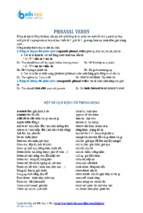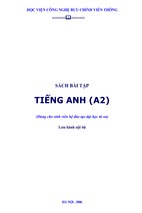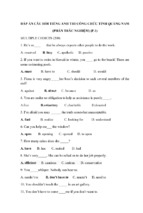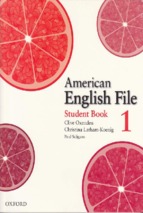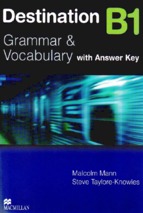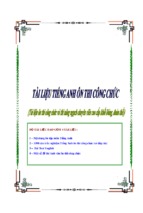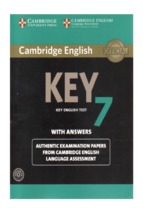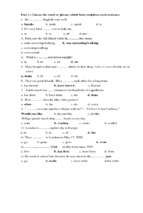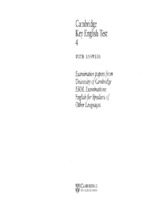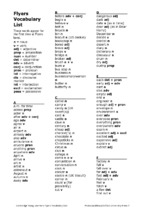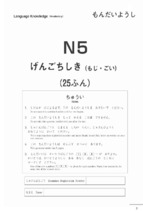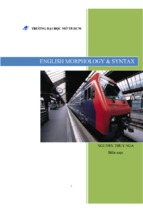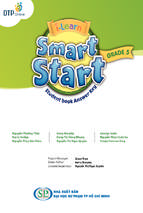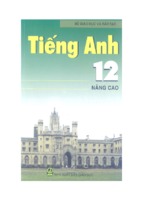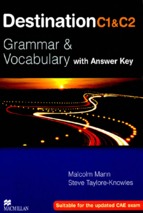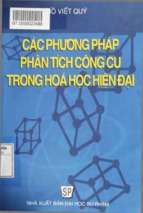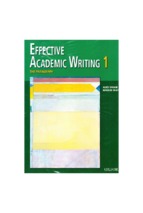HUNG VUONG UNIVERSITY
DEPARTMENT OF FOREIGN LANGUAGES
-----------------------
NGUYEN THI HUYEN THU
THE USE OF QUIZIZZ APPLICATION IN ENHANCING
ENGLISH VOCABULARY LEARNING OF STUDENTS IN
GRADE 10 AT HUNG VUONG HIGH QUALITY SCHOOL
B.A. GRADUATION PAPER
Field: English Methodology
PHU THO, 2020
HUNG VUONG UNIVERSITY
DEPARTMENT OF FOREIGN LANGUAGES
-----------------------
NGUYEN THI HUYEN THU
THE USE OF QUIZIZZ APPLICATION IN ENHANCING
ENGLISH VOCABULARY LEARNING OF STUDENTS IN
GRADE 10 AT HUNG VUONG HIGH QUALITY SCHOOL
B.A. GRADUATION PAPER
Field: English methodology
Supervisor: NGUYEN THI PHUONG THAO, M.A
PHU THO, 2020
i
ACKNOWLEGGEMENTS
I wish to express my sincere gratitude to the many people who gave
enormous help during the implementation of my research.
First and foremost, I would love to express my deepest gratitude to my
supervisor Ms. Nguyen Thi Phuong Thao, M. A. for the patience in giving me
guidance and helpful corrections during my consultations for this final project.
She shared lots of helpful advice and valuable experiences.
Secondly, my deep gratitude was dedicated to all lecturers of the English
Language Department, and all staff of the English Language Department for
giving me priceless knowledge and unforgettable experiences during my study.
Thirdly, I was particularly grateful to all teachers and students of grade
10A at Hung Vuong High Quality School who enthusiastically participated in
my questionnaires and my experiment.
Moreover, I owned great debt of gratitude to my family and my friends,
who have constantly supported and encouraged me during the time I carried
out this research.
Finally yet importantly, I would like to thank my readers for their
interests and comments on my writing.
Viet Tri, June 2020
Nguyen Thi Huyen Thu
ii
ABSTRACT
This research has been conducted for the purpose of using Quizizz in
enhancing English vocabulary learning for grade 10. There were 40 students of
class 10A from Hung Vuong High Quality High School participating in this
study. The data was collected from survey questionnaires for students. The
result showed the real situation of learning English vocabulary as well as the
effectiveness of using Quizizz in enhancing English vocabulary of students at
class 10A.
The study consisted of three main parts. Part A dealt with the rationale,
research purposes, research questions, research methods, significance of the
research, and scope of the study. Part B was content of the study consisted of 4
chapters. Chapter 1 provided the theoretical background of the study consisting
of some basic knowledge of English vocabulary, game online, and Quizizz
application. Chapter 2 mentioned the setting of the study, participants, research
method, instruments used, and description about the step to carry out the
research. Chapter 3 presented the current situation in learning English
vocabulary in class 10A at Hung Vuong High Quality School and then gave
description of the experiment on applying Quizizz in learning English
vocabulary. Chapter 4 presented the result from questionnaire 2 and discussion.
Part C summarized main issue of the paper, mentioning limitations of the study,
and suggestions for further studies.
It was hoped that the study would make a small contribution to the
improvement of learning English vocabulary.
iii
TABLES OF CONTENT
ACKNOWLEGGEMENTS .......................................................................................... i
ABSTRACT ...................................................................................................................ii
LIST OF ABBREVIATIONS .....................................................................................vi
LIST OF TABLES.......................................................................................................vii
LIST OF CHARTS ......................................................................................................vii
LIST OF FIGURES ................................................................................................... viii
PART A: INTRODUCTION........................................................................................ 1
1. Rationale ..................................................................................................................... 1
2. Previous researches .................................................................................................... 2
2.1 In the world ............................................................................................. 2
2.2 In Viet Nam ............................................................................................. 6
3. Research purposes...................................................................................................... 7
4. Research questions..................................................................................................... 7
5. Research methods ...................................................................................................... 7
6. Significance of the research ...................................................................................... 8
7. Research scope ........................................................................................................... 8
8. Research design.......................................................................................................... 8
PART B: CONTENT ..................................................................................................10
CHAPTER 1: LITERATURE REVIEW ..................................................................10
1.1 Vocabulary .............................................................................................................10
1.1.1 Definition of Vocabulary .................................................................... 10
1.1.2 Types of Vocabulary........................................................................... 11
1.1.3 The aspects of Vocabulary ................................................................. 12
1.1.4 The importance of Vocabulary ........................................................... 13
1.2 Vocabulary learning ..............................................................................................14
1.2.1 Vocabulary learning methods ............................................................ 14
1.2.2 Factors affecting Vocabulary learning .............................................. 19
1.3 Educational online game .......................................................................................24
iv
1.3.1 What is educational online game ....................................................... 24
1.3.2 The importance of educational online game. ..................................... 27
1.4 Quizizz ....................................................................................................................27
1.4.1 What is Quizizz? ................................................................................. 28
1.4.2 Steps to use Quizizz ............................................................................ 29
1.4.3 Advantages of using Quizizz .............................................................. 35
1.4.4 Disadvantages of using Quizizz ......................................................... 37
1.5 Using Quizizz in enhancing English vocabulary ................................................38
CHAPTER 2: METHODOLOGY .............................................................................40
2.1 Research setting .....................................................................................................40
2.2 Subject of the research...........................................................................................40
2.3 Participants of the research ...................................................................................40
2.4 Data Collection Instruments .................................................................................41
2.4.1 Development of Questionnaire........................................................... 41
2.4.2 Content of Questionnaire ................................................................... 41
2.5 Data Collection Procedure ....................................................................................43
2.6 Data analysis...........................................................................................................43
2.7 Research procedure................................................................................................43
CHAPTER 3: EXPERIMENT ...................................................................................45
3.1 The current situation of learning English vocabulary of students in class 10A at
Hung Vuong High Quality School. ............................................................................45
3.2 Experiment .............................................................................................................50
3.2.1 Experiment procedure ........................................................................ 50
3.2.2 Description of the experiment ............................................................ 51
CHAPTER 4: RESULT AND DISCUSSION .........................................................54
4.1 The result of the experiment .................................................................................54
4.1.1 Result from Quizizz ............................................................................ 54
4.1.2 Data analysis of the questionnaire for students after the experiment 55
4.2 Major findings ........................................................................................................58
v
4.2.1 The current situation of learning English vocabulary of students in
class 10A at Hung Vuong High Quality School .......................................... 58
4.2.2 The class 10A students’ perceptions of using Quizizz in enhancing
English vocabulary learning. ...................................................................... 59
PART C: CONCLUSION...........................................................................................60
1. Summary...................................................................................................................60
2 Implications ...............................................................................................................61
2.1 For teachers .......................................................................................... 61
2.2 For students ........................................................................................... 61
3 Limitations of the Study ...........................................................................................61
4 Suggestions for Further Research............................................................................62
REFERENCES ............................................................................................................63
I. In the world ...............................................................................................................63
II. In Viet Nam .............................................................................................................66
III. Websites ..................................................................................................................66
1.1 In Viet Nam ........................................................................................... 66
1.2 In the world............................................................................................. 67
APPENDIXES
vi
LIST OF ABBREVIATIONS
ABBREVIATIONS
MEANINGS
BYOD
Bring Your Own Device
COVID
COrona VIrus Disease
EFL
English as a Foreign Language
ESL
English as a Second Language
ICT
Information and Communication
Technology
SLA
Second Language Acquisition
%
Percent
vii
LIST OF TABLES
Table 3.1: Student’s opinion about the methods of ..................................................47
English vocabulary learning........................................................................................47
Table 3.2: Students' knowledge and attitudes toward using Quizizz in learning
vocabulary.....................................................................................................................49
Table 3.3: Description of Quizzes ..............................................................................51
Table 4.1: Student Satisfaction Survey ......................................................................57
APPENDIX 4: JUSTIFICATION FOR QUESTIONNAIRE ITEMS ..................69
LIST OF CHARTS
Chart 3.1: Student’s attitude toward the purposes of English vocabulary
learning .........................................................................................................................45
List of Purposes ............................................................................................................46
Item 7: To use them in oral or written mode .............................................................46
Chart 3.2: Student’s reasons of learning English vocabulary less effective ...........48
Chart 3.3: Students' attitude toward using Quizizz in learning vocabulary ............50
viii
LIST OF FIGURES
Figure 1.1: The main screen of Quizizz application .................................................30
Figure 1.2: How to sign up to Quizizz .......................................................................30
Figure 1.3: How to search for quizzes on any topic or create new quiz .................31
Figure 1.5: Ready – made topics ................................................................................32
Figure 1.6: Creating a new quiz ..................................................................................32
Figure 1.7: Game code for joining a quiz ..................................................................33
Figure 1.8: Assigning homework for students ..........................................................34
Figure 1.9: Student’s screen ........................................................................................34
Figure 1.10: Doing a quiz ............................................................................................35
Figure 3.1: What is this? ..............................................................................................51
Figure 3.2: Listen. What word is this? .......................................................................52
Figure 3.3: Preposition.................................................................................................52
Figure 3.4: Synonym/ Antonym .................................................................................52
Figure 3.5: Fill in the Blank (Relative Pronoun) .......................................................53
Figure 3.6: Check box..................................................................................................53
Figure 4.1: General result of the unit 8 (1).................................................................54
Figure 4.2: General result of the unit 8 (2).................................................................54
1
PART A: INTRODUCTION
1. Rationale
English has played an important role in daily life. It was the medium of
communication, which people from different countries around the world can
understand (Rakangthong, S., & Yimwilai, 2020). Reddy (2016) claimed that
English played an important role in the modern world. This was because it was
the most frequently used language on the World Wide Web. Therefore, English
was no longer a mere subject to be learnt in the classroom but also emphasized
social and practical use. English language was also a key success factor needed
for educational purposes. English was vital for success at school and for further
education (Rakangthong, S., & Yimwilai, 2020).
Vocabulary knowledge was important for every learner in order to
succeed in learning a foreign language, especially English. Harmer (2001)
emphasized that in order to succeed in the foreign language learning, learners
needed to focus on their vocabulary knowledge improvement. In addition,
Schmitt (2000) stated that vocabulary learning has become one of the most
essential parts in second language acquisition. Bromley (2007) stated that it
was a principal contributor to comprehension, fluency, and achievement.
Hence, vocabulary played a very crucial role in learning a foreign language.
With the first teaching internship at Hung Vuong High Quality School, I
realized that students’ English vocabulary was limited. They usually felt bored
with vocabulary lessons. When being asked about method to learn vocabulary,
most of them said that they used traditional methods such as: learn by heart, or
write new words many times. They have not found out effectiveness way to
enrich their vocabulary.
There were so many techniques to improve students’ vocabulary. One of
them was using games. Games had many advantages for both language teachers
and the students. They supported learning the target language when students
were involved in the games and had fun without noticing that they were
learning the target language, and furthermore it was a pleasure for the teacher
2
to present the language in an enjoyable atmosphere. Another advantage of using
games in a foreign language setting was to make less stressful moment gone.
In a language learning atmosphere, stress-free environment should be provided
(Gozcu & Caganaga, 2016).
The integration of technology became a necessity in education to meet
the requirements of 21st century learning by using an online learning platform,
one of which was Quizizz application. Some researchers have found about the
Quizizz Applications in improving students' vocabulary. According to Ju
(2018) states that Quizizz was an online assessment tool as a fun multiplayer
classroom activity that allows all students to practice together with their
computer, smartphone and I Pad. It helped students check their knowledge and
progress in learning and teachers can also assign homework to give students
additional practice especially assess student language in their curriculum
knowledge.
For these reasons, the study entitled “The use of Quizizz application in
enhancing English vocabulary learning of students in grade 10 at Hung
Vuong High Quality School” was conducted to examine the effectiveness of
Quizizz application in enhancing English vocabulary. The researcher hoped
that the implementation of Quizizz application can attract students in grade 10
at HV High Quality School to the learning of English vocabulary.
2. Previous researches
2.1 In the world
Meng, C. K., Nasir, J. S. B. M., Ming, T. M., & Choo, K. A. (2019)
conducted a research “A Gamified Classroom with Technical and Vocational
Education and Training (TVET) Students using Quizziz”. The study had
implemented a gamification web application (Quizizz) into two groups of
Technical and Vocational Education and Training (TVET) students, and also
observed their engagement and eventually their quiz results for Human
Computer Interaction (HCI) subject for five lectures were recorded. In total, 47
students were participated in this study. The lecturer gave short lectures to
3
students beforehand and followed by giving them simple quizzes through
Quizziz. With leaderboard and points as a gamification benchmark, the
performance of the students was tracked for 4 class session to evaluate the
effectiveness of gamified classroom.
Rajendran, T., Naaim, N. A. B., & Yunus, M. M. (2019) conducted a
research “Pupils’ Motivation And Perceptions Towards Learning English
Using Quizvaganza”. The research design for this study was action research
and the procedure was according to Kurt Lewin Model’s Intervention Cycle.
Forty pupils were chosen as the target group for this study. The Quizvaganza
game was conducted for three different skills from the same topic after they
completed the lesson each day. The data was collected using Likert Scale
questionnaires consisting of 14 items and semi-structured interview questions
for 3 selected students. The results of the questionnaires and interview were
shown in figures and tables. Findings of the study showed that it increased the
interest of pupils in the class, and had a positive impact on pupils’ motivation.
They enjoyed learning English using games and wish to have more games in
the future.
Pitoyo, M.D., Sumardi, & Asib, A. (2019) conducted a research
‘Gamification based assessment: A Test Anxiety Reduction through Game
Elements in Quizizz Platform”. The study investigated the category of students
test anxiety, students' attitudes toward Quizizz and the students' preference
toward the elements of game in Quizizz. This study was a case study which the
data were collected by using observation, interview, and questionnaires. The
participants of this study were 14 students in an English course in Solo. The
sampling used by the researcher was purposive sampling. The results of this
study showed the category of students test anxiety considered moderately high,
the students' attitude toward Quizizz in reducing test anxiety also considered
high (M= 3.94) and the kinds of elements of game which students preferred
most were Points (M= 4.357), Test report (M= 3.929), Leader board
(M=3.714), Time restriction (M=3.357), Profile (M= 3.429) and Meme (M=
4
3.357). The implication of this study was Quizizz successfully reduce test
anxiety because of the use of game elements in that application. Thus, it was a
good option for teachers to use Quizizz on the exam.
Akhtar, H., & Hasanati, N. (2019) conducted the research “Game-based
learning: teachers’attitude and intention to use Quizizz in the learning
process” .The purpose of this study was to investigate the teachers’ attitude and
intention to use Quizizz as an online game-based learning platform in the
learning process. This study used an action research method. Thirty-two high
school teachers in Malang were selected as target groups for this study. The
teachers were given training related to the use of Quizizz in the learning
process. At the end of the project, they were asked to make their own test using
Quizizz. The data were collected using close-ended questionnaires to determine
the teachers’ attitudes and intentions to use Quizizz. The data were analyzed
using descriptive analysis. Most teachers answered that the training provided
was beneficial. Findings of the study also showed that teachers’ attitude
towards Quizizz was positive, and they intended to use Quizizz in the learning
process in the future. Intention to use Quizizz was also related to the age of the
teacher. The older the teacher, the lower the intention to use Quizizz
Amornchewin, R. (2018) conducted the research “The Development of
SQL Language Skills in Data Definition and Data Manipulation Languages
Using Exercises with Quizizz for Students' Learning Engagement” In this
paper, the researcher applied the SQL (Structured Query Language) skill in data
definition language (DDL) and data manipulation language (DML) exercises
and engaged the student’s learning by using Quizizz on students’ Introduction
to Database course. The sample consisted of 34 students who enrolled in an
Introduction to Database course in semester 1 of the academic year 2017. The
students applied SQL language skill exercises when working on SQL
assignment statement syntax. The students' pre-tests and post-tests were
assessed. Percentage, mean and standard deviation, and average score (t-test)
were used to analyze the data. The result showed that the students’ scores from
5
the post-test was higher than the pre-test. There was a statistical significance at
the level of 0.05. According to the result, it indicated that the students’
achievement was improved by the implementation.
Chaiyo, Y., & Nokham, R. (2017) conducted a research “The effect of
Kahoot, Quizizz and Google Forms on the student's perception in the
classrooms response system” This paper showed the results from investigating
the effect of using Kahoot, Quizizz, and Google Forms in classroom on how
the students' perception of concentration, engagement, enjoyment, perceived
learning, motivation, and satisfaction. The results showed that students learned
something from doing the quiz via Kahoot, Quizizz and Google Forms. But,
there were significant differences in the concentration, engagement, enjoyment,
motivation, and satisfaction. Kahoot and Quizizz had presented a lot of
positives over Google forms when used in the classroom.
Arttırmak, O. D. Ö. K. B., & Samet, B. A. L. (2018) conducted a study
to investigate the effectiveness of Quizizz in enhancing pre – intermediate
student’s vocabulary knowledge. In this study, 60 students who studied at a
University in Turkey were divided into two groups and they have been
observed over a 4 week period and an achievement test was administered to
both groups. The experimental group used an app called “Quizziz” during these
4 weeks and the control group went on learning vocabulary through traditional
paper-based activities. Results from this observation and the test showed that
the experiment group slightly outscored the control group. However, no
significant difference was observed between the scores of these two groups.
Permana, P., & Permatawati, I. (2020) examined the effect of using
Quizizz as a formative test tool in German classrooms. This study involved a
group that consisted of two classes, namely class A with 32 students and class
B with 29 students. The two classes received equal treatment, namely the
Quizizz application. A survey questionnaire and test were used in this study.
The results showed that the application of Quizizz was effective to be used as
6
a formative test tool in learning German. In addition, students also showed a
positive response to the use of Quizizz in the classroom.
Zhao, F. (2019) investigated the effectiveness of Quizizz on enhancing
students’ learning experiences in an accounting classroom. 130 1st-year
students of the accounting class at a university in American participated in this
study. After doing in-class exercises using Quizizz, students reported that this
app brought positive impact on their learning experiences. Class section in
which Quizizz was applied more frequently reports higher scores on the
satisfaction of using this app and higher scores on the instructor’s teaching
evaluation.
Ju, S. Y., & Adam, Z. (2018) conducted a research “Implementing
Quizizz as game based learning in the Arabic classroom”. The main purpose
of this research was evaluating the effectively interesting of students for Arabic
class by implement of Quizizz as a game based learning in the Arabic classroom
of Sultan Idris Education University Malaysia. The researchers tested 85
students for 3 sections during Arabic course titled “Arabic skill”. The results of
the questionnaire showed that the students displayed the position attitude for
Quizizz as an online teaching and assessment tool during the Arabic class.
2.2 In Viet Nam
Ha Anh Phuong (2019), an English teacher of Huong Can High School,
Thanh Son district, Phu Tho province who was one of the global teacher in
Viet Nam. She applied Quizizz for her students in learning English vocabulary.
They all felt engaging by funny cartoon images corresponding to the right or
wrong answers, to make players surprised and excited. She also Quizizz gave
homework for students to practice more.
Nguyễn Hoàng Thảo (2019) used Quizizz to make test and check
homework for students in Math. In his research, he showed that Quizizz was
used as a form of homework, making learning time more enjoyable. The teacher
could observe the number of questions the student has completed, true or false.
7
The highlight of Quizizz was the use of funny cartoon images corresponding to
the right or wrong answers, making the player surprised and excited.
3. Research purposes
The study aimed to find out current situation in learning vocabulary of
students in class 10A at Hung Vuong High Quality School, and then applied
Quizizz application in learning English vocabulary for students. Basing on the
results, gave an evaluation about the effectiveness of using Quizizz application
in enhancing English vocabulary learning of students in class 10A at Hung
Vuong High Quality School.
4. Research questions
Towards achieving the above research purposes, the research found out
the answers to the two following research questions:
1. What is the current situation of learning English vocabulary of
students in class 10A at Hung Vuong High Quality School?
2. How is the class 10A students’ English vocabulary learning be
enhanced after using Quizizz?
5. Research methods
- Theoretical research method: This method helped review the
literature of vocabulary, Quizizz application, helping to know the importance
of vocabulary in learning English.
- Investigating method: This method was used to investigate the current
situation of learning English vocabulary of students at Hung Vuong High
Quality School and the effectiveness of using Quizizz application in learning
English vocabulary.
- Experimental method: This method was employed to apply Quizizz
application in learning English vocabulary for students at Hung Vuong High
Quality School.
- Mathematical statistical method: It was used to calculate the data
collected from survey questionnaires to get the final results.
8
6. Significance of the research
This study was very important for a lot of reasons. Firstly, the result of
this research was expected to give some contributions for the improvement of
the English language learning at high schools in general and at Hung Vuong
High Quality School in particular. Secondly, this study also provided teachers
a new educational tool beside traditional methods in teaching to make the
students interested in the subject. Thirdly, the application of Quizizz in learning
English vocabulary would bring students a new learning experience as they
could learn and play at the same time rather than memorize long lists of words.
It made their learning English vocabulary process easier, more interesting, and
effective. Finally, it enabled other researcher to get reference about the
implementation of applying Quizizz in enhancing English vocabulary.
7. Research scope
With the development of technology, many online games were appeared
to support learning, especially for language learning. In this study, only Quizizz
was applied to enhance English vocabulary learning of students because
Quizizz had a full library of ready – made quizzes, I could choose and edit for
my purposes. In addition, with the first teaching internship at Hung Vuong High
Quality School, I was assigned to teach English at class 10A. I realized that
student’s vocabulary was at a low level. Besides, due to time constraint, I only
focused on small context of grade 10 students at hung Vuong High Quality
High School. The author would choose class 10A which included 40 students
to carry out the study.
8. Research design
This study consisted of 3 parts:
PART A: INTRODUCTION
This chapter presented the overview of thesis including the rationale for
the research, research purpose, research question, research methods,
significance of the research, and scope of the study.
9
PART B: CONTENT
CHAPTER 1: LITERATURE REVIEW
This chapter provided the theoretical background of the study consisting
of some basic knowledge of English vocabulary, English vocabulary learning,
game online, and Quizizz application.
CHAPTER 2: METHODOLOGY
In this chapter, the researcher mentioned research setting, the
participants, instruments used, and description about the steps to carry out the
research.
CHAPTER 3: EXPERIMENT
Chapter 3 presented the current situation of learning English vocabulary
of students in class 10A at Hung Vuong High Quality School and then carried
out the experiment.
CHAPTER 4: RESULTS AND DISCUSSION
This chapter gave the results and some major findings after the
experiment.
PART C: CONCLUSION
This chapter presented summary of the study, limitations of the study,
and suggestions for further studies.
10
PART B: CONTENT
CHAPTER 1: LITERATURE REVIEW
1.1 Vocabulary
1.1.1 Definition of Vocabulary
Neuman & Dwyer (2009) cited vocabulary as “words we must know to
communicate effectively; words in speaking (expressive vocabulary) and
words in listening (receptive vocabulary)”. Alqahtani (2015) also highlighted
that vocabulary is the total number of words that are needed to communicate
ideas and express the speakers' meaning. Linse (2005) stated that vocabulary is
the collection of words that an individual knew. Neuman and Drawyer as cited
in Bintz (2011, p. 44) said that vocabulary could be defined as the words
someone must know to communicate effectively: words in speaking
(expressive vocabulary) and words in listening (receptive vocabulary).
According to Lehr, Osborn, & Hiebert (2004) stated that vocabulary
referred to the kind of words that students had to know to read increasingly
demanding text with comprehension. Words that were considered appropriate
were words that were comprehensible by learners and were coherent to their
proficiency level (Allen, Namara, & Crossley, 2012). In the case of vocabulary
acquisition, the input needed to convey meanings and be comprehensible so
that learners were able to attach form to meaning (Ismail, Zaid, Mohamed &
Rouyan, 2017). While, Nguyen Ba Ngoc and Nguyen Bang (2011) claimed that
vocabulary of a language were all its words, compounds and idioms used to
convey and received information in oral and written communication.
According to Cambridge Advanced Learner’s Dictionary Online,
vocabulary was defined as:
- All the words that a person knows or uses,
- All the words in a particular language,
- The words that people use when they are talking about a particular
subject and
- Xem thêm -


